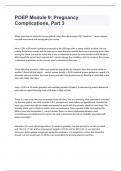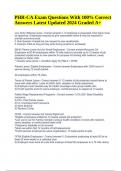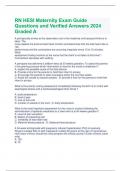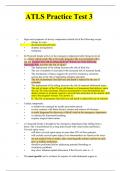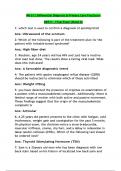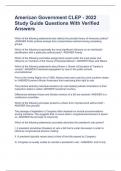Essay
BTEC Business Level 3 Unit 23 The English Legal System Assignment 1 (Distinction)
- Course
- Institution
This document contains the first assignment for Unit 23 The English Legal System, for the BTEC course Business Level 3. The assignment is overall 8 criteria with a word count of 10,344 words and 57961 characters.
[Show more]




